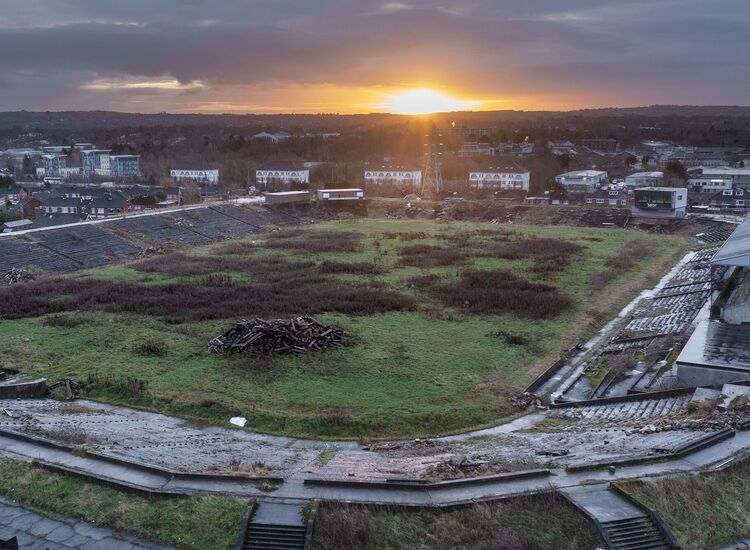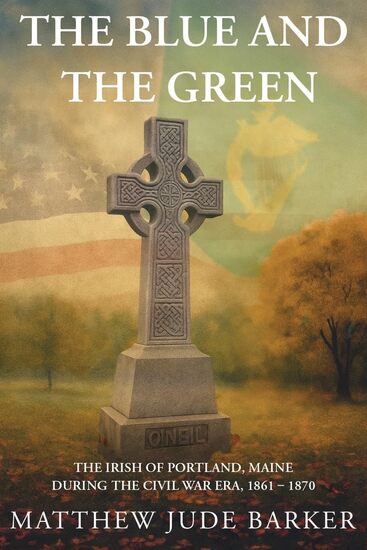Participants in the Fordham University symposium on Feb. 28, 2016 that preceded the Waking the Feminists’ launch in the U.S.
By Orla O’Sullivan
As we note the recent 1st anniversary of Waking the Feminists’ launch in the U.S., playwright Honor Molloy might seem to some as the poster child for the protest movement.
A year ago, her voice was breaking as she expressed her frustrations to a symposium at Fordham University, on the eve of WTF’s official launch at the Irish Arts Center in New York on Feb 29.
“I've written six full-length plays, three set in Ireland. How many have you seen?!” Molloy rhetorically asked the audience of academics and women from the arts. She went on, circling her arm about herself: “After 32 years, this is the size of my theater--the size of a porta-potty!”
Fast forward one year and Molloy’s play "Crackskull Row" has been extended to March 26 at the Irish Repertory Theatre and designated a New York Times Critic’s Pick. More notably, the Times, compared Molloy with probably the world’s best-known contemporary Irish playwrights, Conor McPherson and Martin McDonagh, stating, “Now Ms. Molloy enters the ring.”
Of course, real life is not as neat as that story arc suggests. Molloy had had plays produced and recognized, albeit not at the level she would have liked, and the Rep has not only staged many women’s plays, it opened its doors with one 29 years ago. And, while several sources mentioned Molloy’s run (directed by a woman, Kira Simring) as an example of gains for women in Irish theatre here since WTF, one could argue her singular success is the exception that proves the rule.
The WTF movement arose by chance from a social media posting that snowballed. A set designer unimpressed by Ireland’s national theatre’s 1916 commemorative program mocked its title, Waking the Nation. Lian Bell’s Waking the Feminists Facebook post, observing that just one of 10 plays in the Abbey Theatre’s commemoration was written by a woman, went viral.
The results of that October 2016 post and WTF generally are much more clear-cut in Ireland than in the U.S. Over the next 12 months, the Abbey added several female playwrights to its 1916 program, appointed women directors and board members and undertook a gender equality review. Other, major Irish cultural institutions, adopted similar measures. Additionally, an analysis of how much Arts Council funding goes to women is soon to be published.
It’s much harder to draw a cause-and-effect line for WTF in the U.S. – even aside from Irish arts being a niche interest here, and the Trump Administration threatening to eliminate arts’ funding.
Ambitious plans were floated for WTF in the States at the Fordham symposium, from WTF branching beyond New York to other cities and from theatre across the arts, to, say, creating a central library of women’s plays. Writers were urged to create more female characters and teachers to include women’s work on their courses.
Early this month, the Echo asked playwright Lisa Tierney-Keogh, the main organizer of WTF in the States, about the movement’s main achievements and future goal. Sharing a timeline with milestones from Ireland (http://www.wakingthefeminists.org/about) she said, “The campaign was only ever a one year campaign.” At a final meeting in the Abbey last November, she said “we made a call out to people to take up where we were leaving off.”
There’s no doubt that WTF—on both sides of The Pond—raised awareness of women’s under representation in theatre. (A chance photo op with Meryl Streep, Tierney-Keogh and actor-playwright Laoisa Sexton standing behind a #WakingTheFeminists sign took the campaign global via Twitter.)
Several sources said they discern a change in attitude since WTF. Among them is Brona Crehan who has a play in the annual short-play festival in An Beal Bocht this year, starting on March 30.
“The [WTF] movement has greatly discouraged the ‘that’s just how it is’ theater folks’ mentality of men having a distinct and immediate advantage over women in theater,” Crehan said.
This year is the first in the festival’s seven-year history that all the playwrights are women.
Festival Director Don Creedon said, “Yes, I would certainly agree that the decision to do a women-only festival was influenced by Waking the Feminists. Hopefully, our festival can be seen as part of a sustained policy for inclusion going forward.
“The problem is not that no one is doing women’s plays; it’s that when they are produced they are usually performed in smaller spaces at smaller theatres, like ours!” he added regarding the Bronx bar.
One example of light hidden under a bushel that struck this reporter was Sarah Fearon’s solo show “Air Rights,” which took place in a humble upstairs theatre several years ago. The comic writer-performer and Irish American Writers and Artists board member is heartened by the growth in IAW&A’s female board representation, women’s comedy clubs, and the fact that, “There is clearly more of a women’s movement happening today.” Increased activism, generally, post-election may help.
The Rep, as the main stage for Irish plays in the States, particularly came under fire last year for not producing what was perceived to be enough women’s plays and, when it did, for relegating them to its small, downstairs theater.
This year, several sources suggested the two women’s plays downstairs at the Rep were a result of WTF.
The Echo asked the Rep’s directors Charlotte Moore and Ciarán O’Reilly, Without WTF would you have staged Lisa Sexton and Honor Molloy’s plays? “Yes we would. They are both terrific plays, which is the standard we use,” the pair responded by email. They also cited more than half a dozen instances in which women’s work appeared on the Rep’s main stage.
Molloy’s “Crackskull Row” went from the Cell last fall (its initial run was part of Origin’s 1st Irish Festival when it got rave notices, including from an Echo reviewer) to the Rep this year.
Before it was ever produced, “Crackskull Row” yielded “$100,000 in personal income” from numerous awards and fellowships combined, Molloy said. “One would think that with this caliber of individual support, ‘Crackskull’ would have been snapped up,” she said. “It wasn’t. I was so discouraged I quit writing for theatre.”
Getting productions staged, not merely commissioned or read, is all-important, speakers at the WTF launch emphasized. And forget the notion that women aren’t writing plays, Tierney-Keogh suggested.
The achievements of an unfunded, amorphous volunteer organization may not yet be realized.
Meanwhile, Molloy, for one, concludes her assessment of WTF as: “What an auspicious beginning!”








